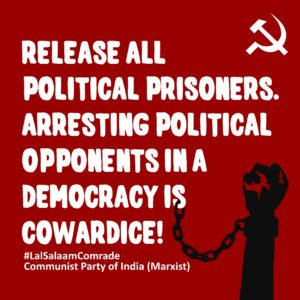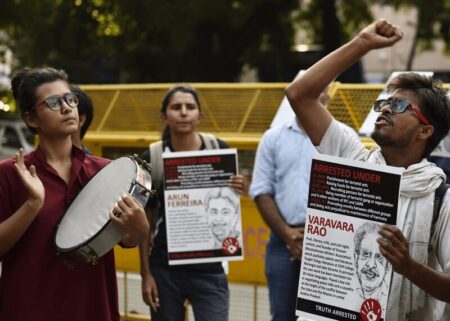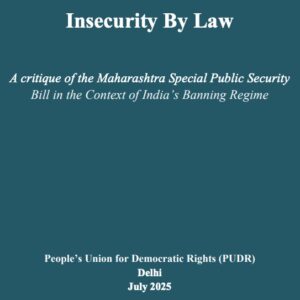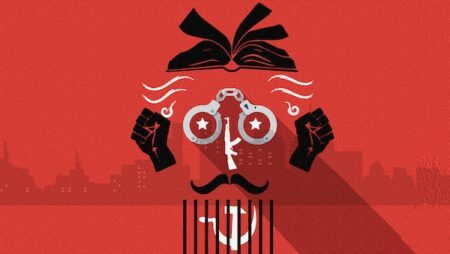Delhi University Vice Chancellor’s speech criticising ‘urban naxals’ draws ire

PUCL condemns regressive and defamatory views of DU Vice Chancellor Prof. Yogesh Singh: At odds with Constitutional values
09/10/2025
Countercurrents.org / by People’s Union For Civil Liberties
People’s Union for Civil Liberties (PUCL) India, is shocked at the troubling views expressed by Dr Yogesh Singh, professor and Vice Chancellor Delhi University on 28th September, 2025 in a speech titled “Naxal Mukt Bharat: Ending Red Terror Under Modi’s Leadership, Why Campuses are Targets?’
…
In the over 20 minute speech, replete with unsubstantiated and defamatory statements about alleged “urban naxals” on campus, Prof Singh named Delhi university’s professors and student activists charged and imprisoned under the draconian Unlawful Activities (Prevention) Act, 1967, including members of the feminist student group Pinjar Tod (Devangana Kalita and Natasha Narwal), charged in the Delhi riots case and Prof Hany Babu and professors Dr Shoma Sen and Dr Anand Teltumbde (mispronounced by Prof Singh as Teltumbedke), charged in the Bhima Koregaon case.
Read more
Delhi University V-C’s speech criticising ‘urban naxals’, Pinjra Tod movement draws ire
08/10/2025
The Indian Express / by Express News Service
Delhi University Vice-Chancellor Yogesh Singh’s speech alleging the presence of “Urban Naxals” in universities and criticising movements like ‘Pinjra Tod’ has triggered protests from students and faculty.
… Referring to the 2018 Bhima Koregaon case, Singh named DU professor Hany Babu and academics Rona Wilson and Anand Teltumbde, saying, “And these are not isolated cases.”
Read more
Also read:
▪ As Maharashtra Govt Brings Bill Against ‘Urban Naxalism’, Activists Fear Criminalisation of Dissent (The Wire / Jul 2025)
▪ Insecurity By Law: A Critique of the Maharashtra Special Public Security Bill in the Context of India’s Banning Regime (PUDR / Jul 2025)
▪ McCarthyism in INDIA?: The Return of The Urban Naxal Bogey! (The Crossbill / Jul 2024)
▪ From ‘tukde tukde gang’ to ‘urban Naxal’: How media trials enable the government to stifle dissent (Scroll.in / Sep 2018)







